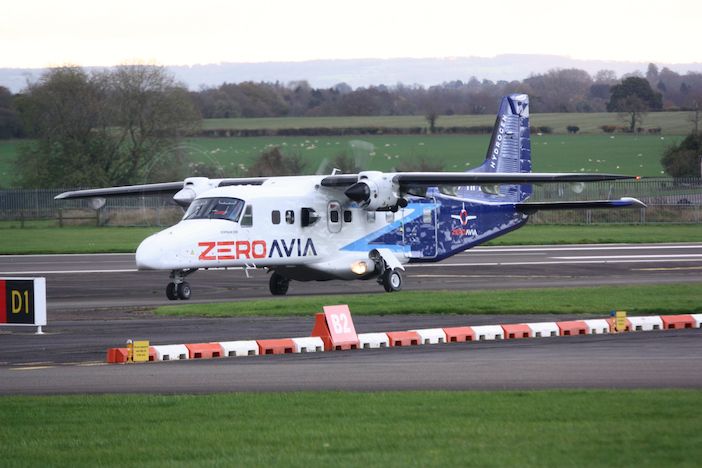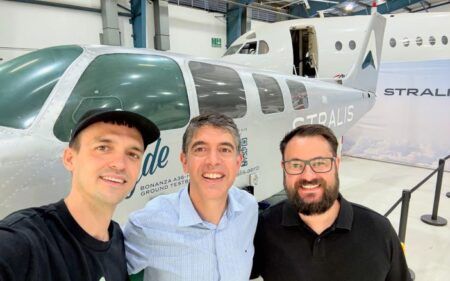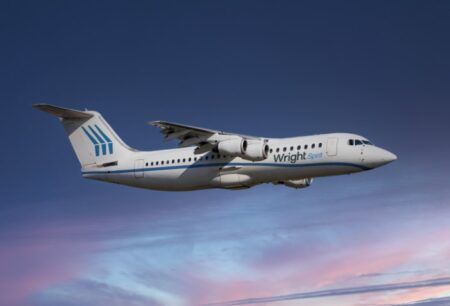ZeroAvia has received permission to fly it’s Dornier 228 hydrogen fuel cell-powered test aircraft and is planning to run the first flight from Costwold Airport in Gloucestershire, UK this month.
The hydrogen aero-engine developer received a Part 21 permit to fly the 19-seat testbed during late December from the UK’s Civil Aviation Authority (CAA) following a successful ground testing campaign.
The twin-engine Dornier 228 has been retrofitted with a prototype hydrogen-electric engine to power the propellor on its left wing, operating alongside a single Honeywell TPE-331 stock engine on the right for redundancy to allow the safe testing of the novel propulsion technology.
The company has another Dornier 228 testbed at its headquarters in Hollister, California which it is using for US certification and R&D.
Part 21 regulatory approval covers aircraft design and production organizations and certifies products, parts, and appliances for aircraft. Securing the permit to fly is a significant milestone toward commercialization for ZeroAvia.
The company said that the requirements for the 19-seater testbed have been much more stringent than the E-Conditions framework it used for the six-seat prototype it flew in 2020.
Val Miftakhov, founder and CEO of ZeroAvia said, “Earning our full Part 21 permit to fly with the CAA is a critical milestone as we develop a zero-emission aviation propulsion system that will be the most environmental and economical solution to the industry’s climate impact.
“We are going to be starting 2023 in the best way possible, by demonstrating through the flight that true zero-emission commercial flight is much closer than many think.”
ZeroAvia aims to submit a configuration for its ZA600 powertrain submitted for certification by the end of this year, ahead of delivering powertrains for the first commercial routes for regional aircraft to commence by 2025.
According to the company, it has 1,500 engines on pre-order.
When test flights begin ZeroAvia’s Dornier 228 is expected to become the largest aircraft to ever fly using a hydrogen-electric powertrain and one of only a handful to fly using liquid hydrogen and a fuel cell.
The first test flight will be a key milestone for ZeroAvia, which was founded in 2017 and is based in the UK and the USA. The UK Government has part-funded ZeroAvia’s technology development through the HyFlyer project, now in its second phase.
The £12.3 million (US$14.7 million) Hyflyer II project started in 2020 and aims to develop a 600kW hydrogen-electric powertrain for a 9-19 seat aircraft by the end of this year.
ZeroAvia has a deal with Textron to certify its hydrogen engine for use with Cessna Grand Caravans.
The company also bought aviation fuel cell technology startup Hypoint in October last year – ZeroAvia was one of two major customers for Hypoint’s yet-to-be-flight-tested high-temperature proton-exchange membrane (HTPEM) fuel cell system.





